10 Mediterranean Diet Mistakes to Avoid And 8 Smart, Dietitian-Approved Meals to Follow Instead
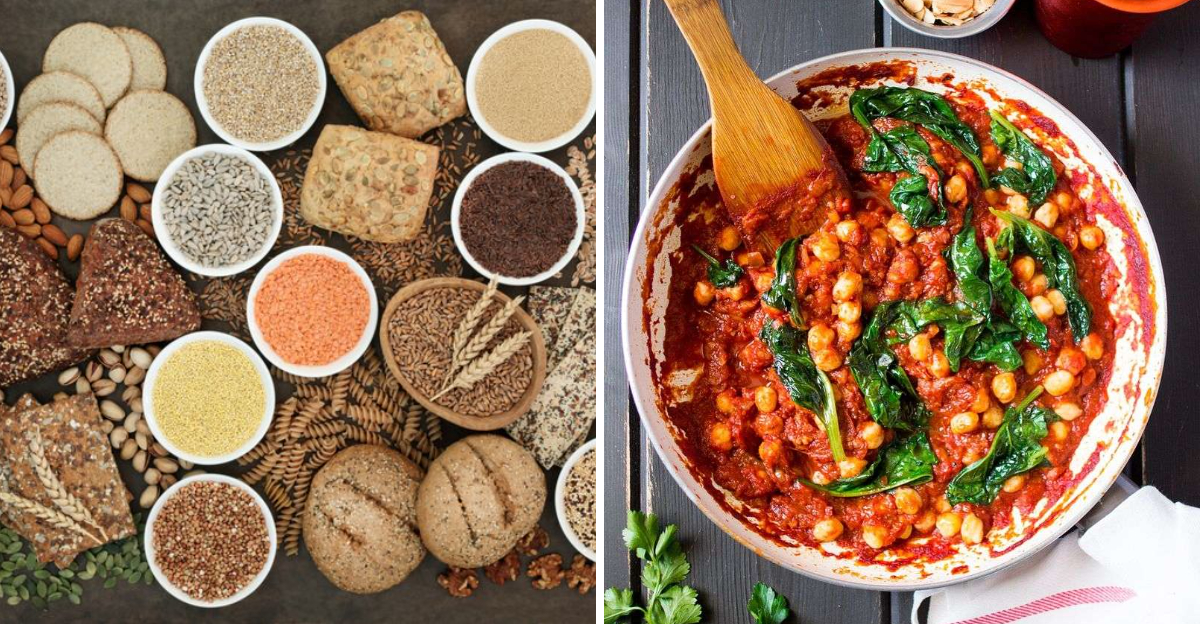
The Mediterranean diet is often praised for being one of the healthiest ways to eat—rich in olive oil, whole grains, lean proteins, and tons of vegetables. But not everyone gets it right. Whether you’re trying it for heart health, weight loss, or just clean eating, here are 10 common mistakes to avoid—plus 8 delicious, dietitian-approved meal ideas to help you stay on track.
1. Overloading on Olive Oil
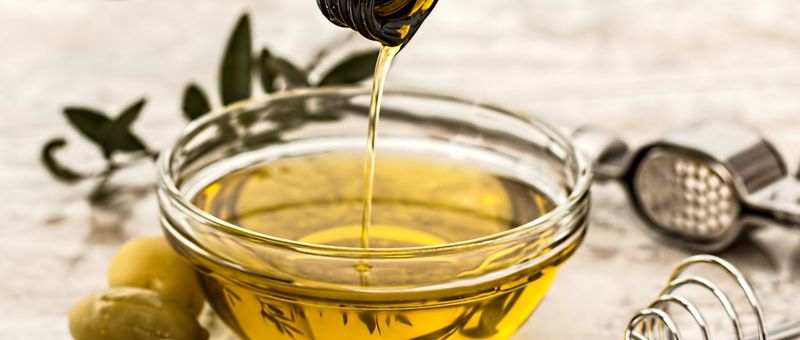
Olive oil is a staple in the Mediterranean diet, celebrated for its heart-healthy monounsaturated fats. However, it’s vital to use it judiciously. An overabundance can quickly lead to excess calorie intake. Imagine drenching every dish in olive oil—it may drown out other flavors and tip the calorie scale. Balance is key. Consider using a sprayer to lightly coat salads or roasted vegetables, or measure out servings to maintain a healthy, delicious balance.
2. Thinking It’s All Pasta and Bread
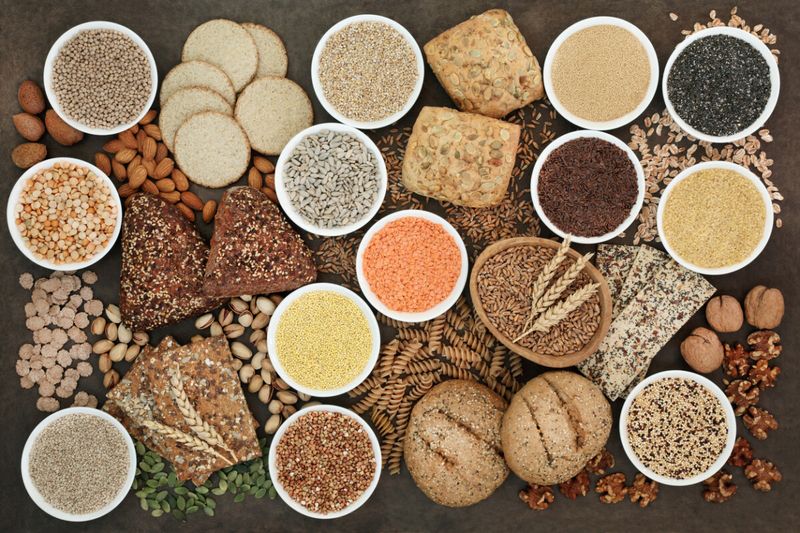
The Mediterranean diet is often misunderstood as being carb-heavy, dominated by pasta and bread. While these foods are included, they aren’t the central elements. Instead, whole grains such as farro, bulgur, and barley play a pivotal role. These grains offer more fiber and nutrients, promoting a balanced diet. Reflect on the diversity in Mediterranean cuisine—it’s more than just carbs. Whole grains can create fulfilling dishes while supporting overall health.
3. Skipping the Veggies
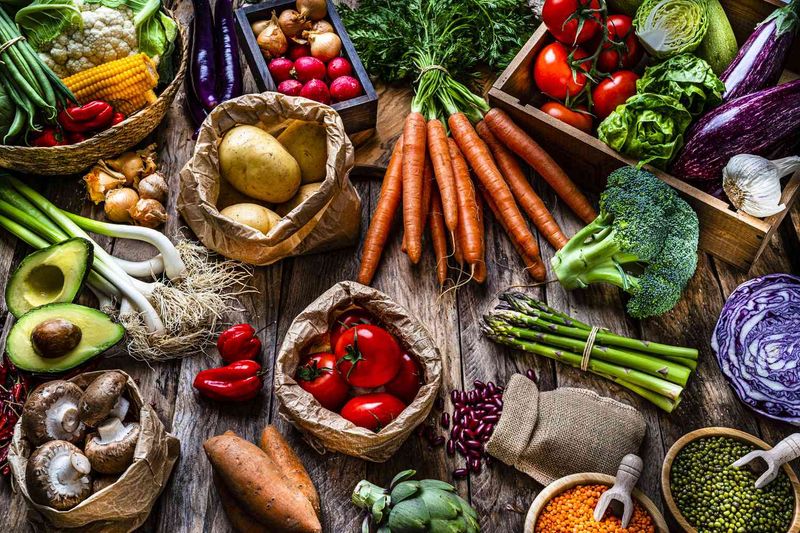
The foundation of the Mediterranean diet is rooted in plant-based foods, yet vegetables are often overlooked. While cheese, olives, and carbohydrates seem appealing, they shouldn’t dominate your plate. Instead, a variety of fresh vegetables should be at the core of your meals. Visualize a plate brimming with colorful produce—it’s not just nutritious but visually enticing. Prioritize plants to truly embrace the Mediterranean way of eating.
4. Eating Too Much Cheese
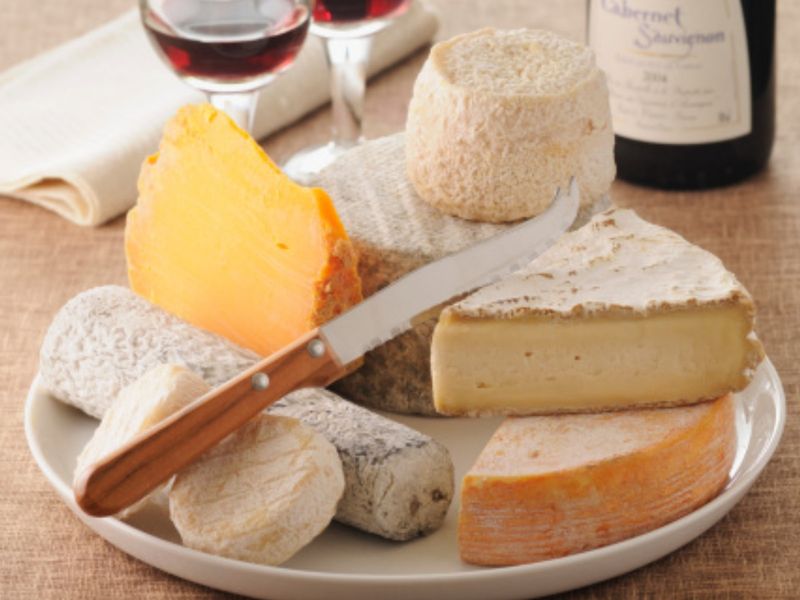
Cheese, especially feta and parmesan, is a delightful component of the Mediterranean diet. However, moderation is necessary. Overindulgence can lead to a diet high in saturated fat and calories. Picture a dish overwhelmed by cheese; its flavor and texture must complement, not overtake. Use cheese as a garnish or flavor enhancer, savoring it in sensible amounts, to keep meals both delicious and balanced.
5. Confusing “Wine Allowed” With “Wine Often”

A glass of red wine with dinner is a cherished tradition in the Mediterranean culture, but moderation is essential. Frequent consumption can negate the diet’s benefits and introduce health risks. Visualize the enjoyment of a single glass, savored slowly with a meal. This mindful approach respects the essence of the diet—balance and celebration without excess. Wine should enhance, not overshadow, your dining experience.
6. Eating Store-Bought Hummus Loaded with Oils
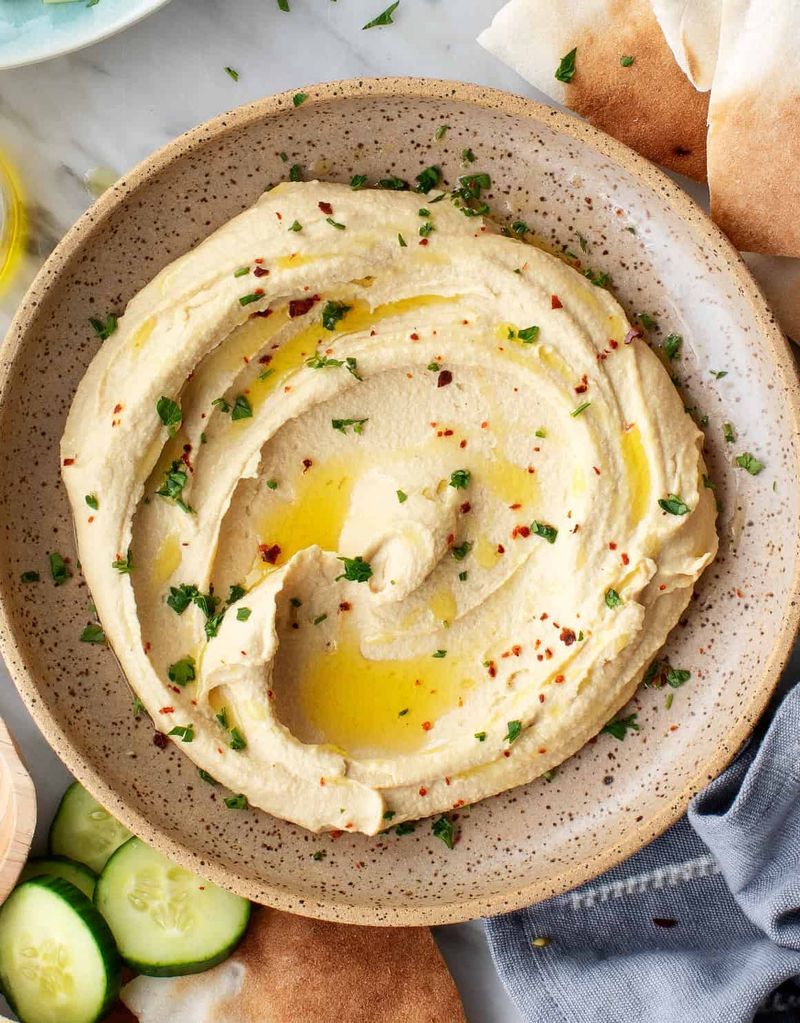
Hummus is a beloved staple, yet many store-bought versions are loaded with excess oils like canola that dilute its health benefits. Imagine a homemade hummus, creamy and flavorful with minimal ingredients. Crafting your own allows control over the oils and salt used, preserving its nutritional integrity. A simple blend of chickpeas, tahini, lemon, and garlic captures the authentic essence of this traditional spread.
7. Treating Mediterranean Food as One-Size-Fits-All
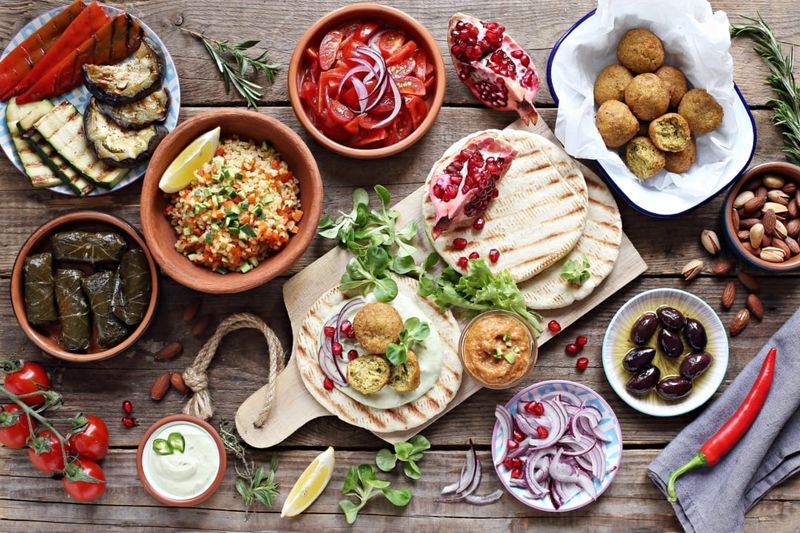
The Mediterranean diet is not a monolith; it beautifully varies by region. Each area has its own flavors, ingredients, and culinary traditions. Envision a spectrum of dishes—from Spain’s olive oil-rich gazpacho to Lebanon’s herb-filled tabbouleh. Embrace the local produce and spices available to you, allowing your diet to be as diverse as the Mediterranean itself. This approach honors the diet’s cultural richness and adaptability.
8. Ignoring Portion Control
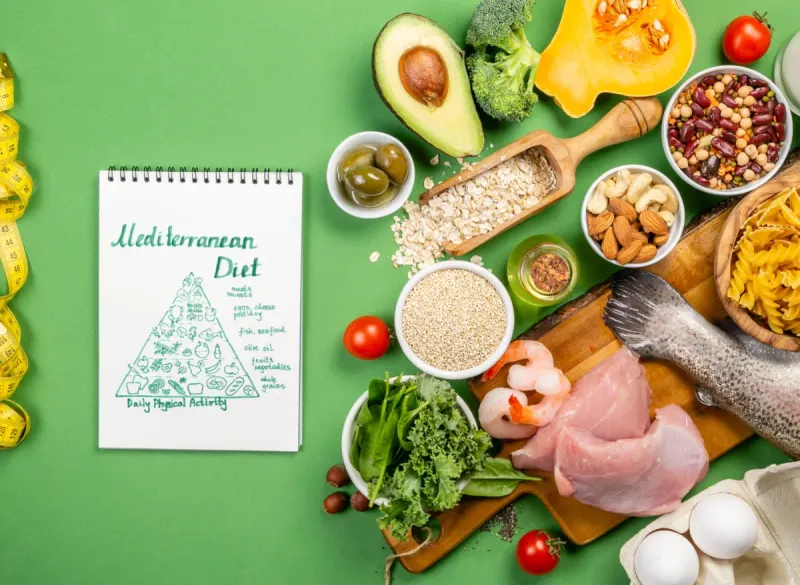
Even the healthiest foods can lead to weight gain if eaten in excess. The Mediterranean diet is known for its nutrient-dense foods like nuts, oils, and avocados, but portion control remains crucial. Picture these foods as delightful accents to a meal, not the main act. Mindful eating, where you savor each bite, allows for enjoyment without overindulgence. Moderation helps maintain the diet’s health benefits.
9. Not Including Enough Legumes
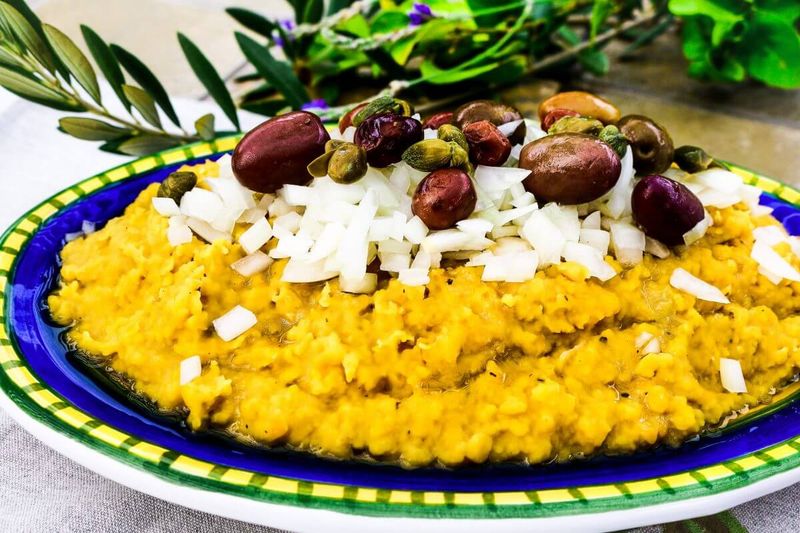
Legumes such as beans, chickpeas, and lentils are vital to the Mediterranean diet, offering fiber, protein, and essential nutrients. Yet, they are often sidelined. Consider the heartiness of a chickpea stew or lentil salad—they’re not just side dishes but integral parts of a meal. Incorporating legumes ensures a diet rich in plant-based proteins, boosting health and variety. They’re the unsung heroes of Mediterranean cuisine.
10. Forgetting That It’s a Lifestyle, Not a Quick Fix
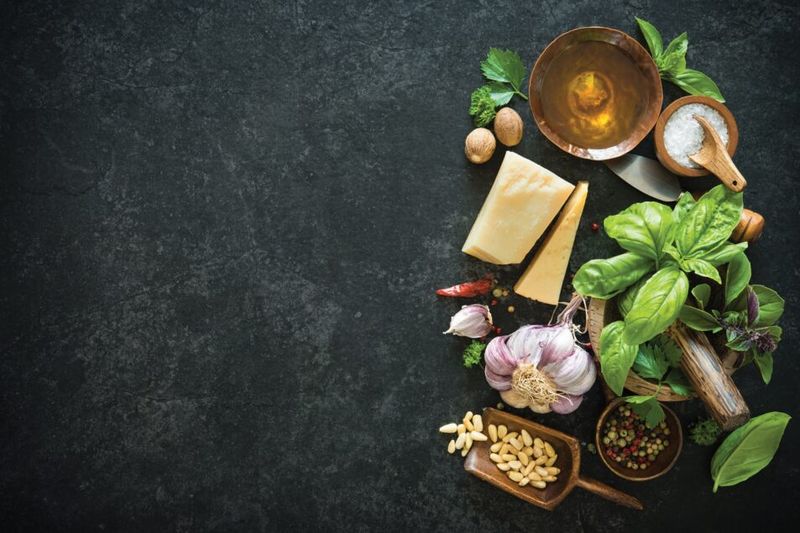
The Mediterranean diet represents a holistic lifestyle rather than a temporary diet trend. It’s about consistent, healthy eating patterns sustained over time. Visualize the journey of embracing fresh, whole foods, and balanced meals—it’s a marathon, not a sprint. This approach nurtures long-term health, transcending mere dietary rules. By embracing it as a lifestyle, you cultivate a deeper connection with food and wellness.
11. Grilled Salmon with Farro and Roasted Vegetables
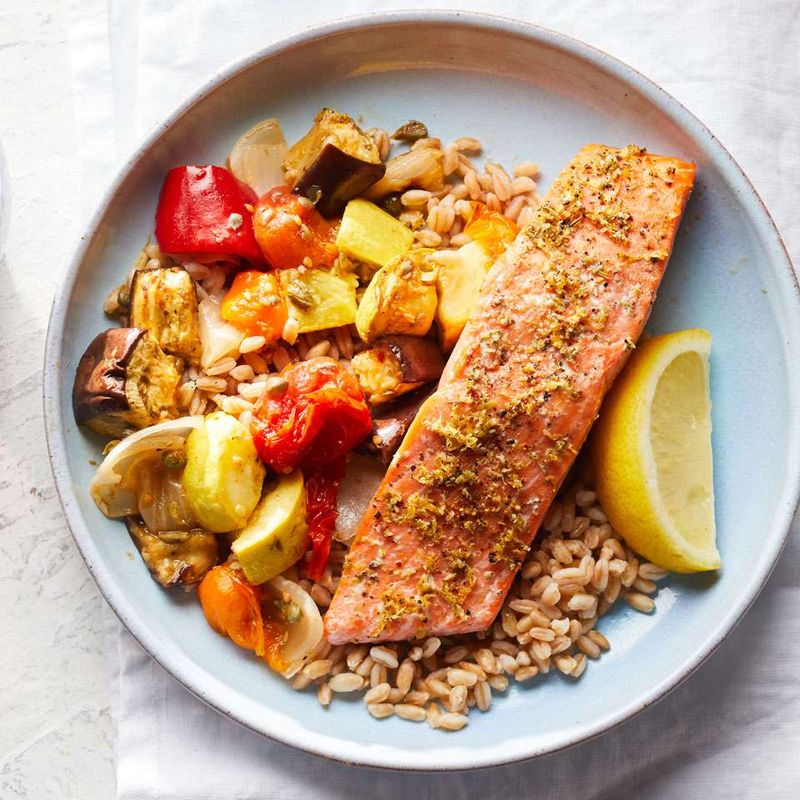
Picture a plate where omega-3-rich salmon meets nutty farro and vibrant roasted vegetables. This meal embodies the Mediterranean diet’s core principles: using fresh, wholesome ingredients that nurture both body and soul. A lemon-herb dressing ties everything together, offering a refreshing zing. This dish isn’t just a meal—it’s a celebration of flavors that sing in harmony. Enjoy it knowing that each bite supports heart health and wellbeing.
12. Chickpea and Spinach Stew with Olive Oil and Tomatoes
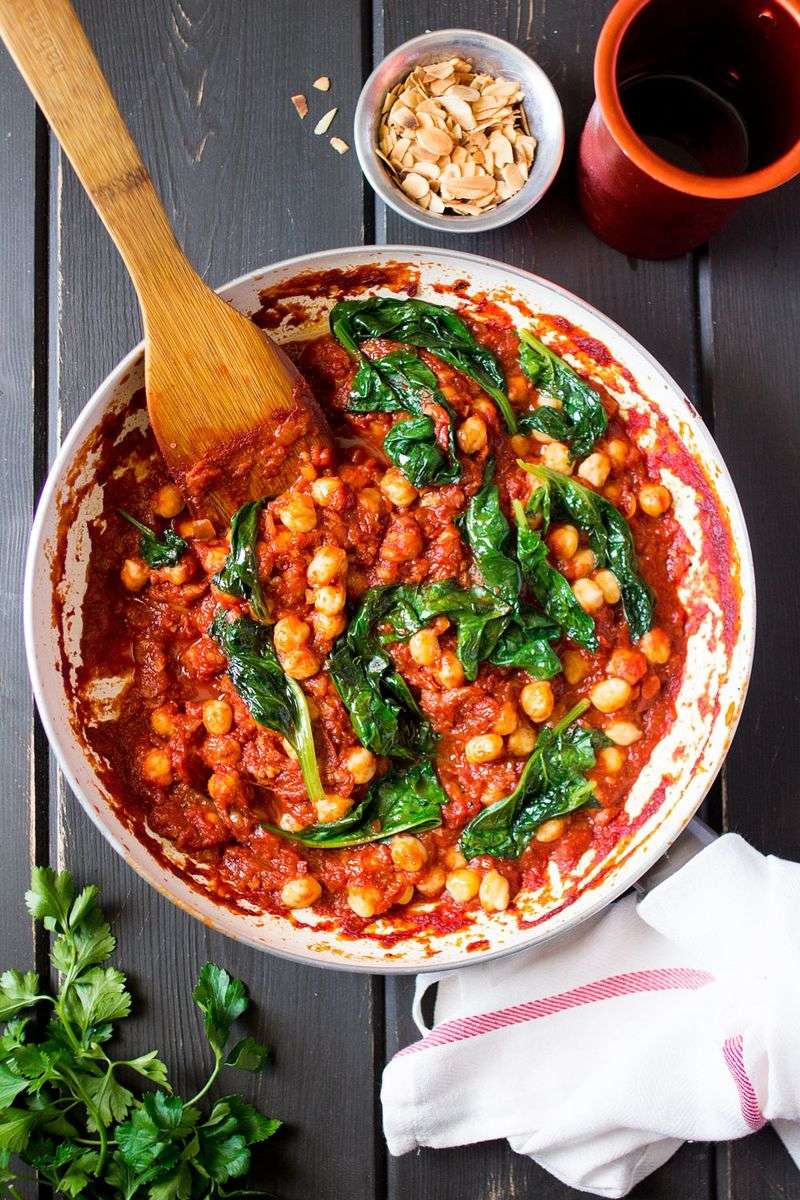
Imagine a warm bowl filled with a rich stew of chickpeas and spinach, bathed in a savory tomato broth. This plant-based dish is not only comforting but also packed with iron, fiber, and antioxidants. A drizzle of olive oil enhances its depth of flavor while providing healthy fats. It’s a meal that satisfies both the taste buds and nutritional needs, embodying the heart of Mediterranean dining.
13. Lentil Tabbouleh with Cucumbers and Mint
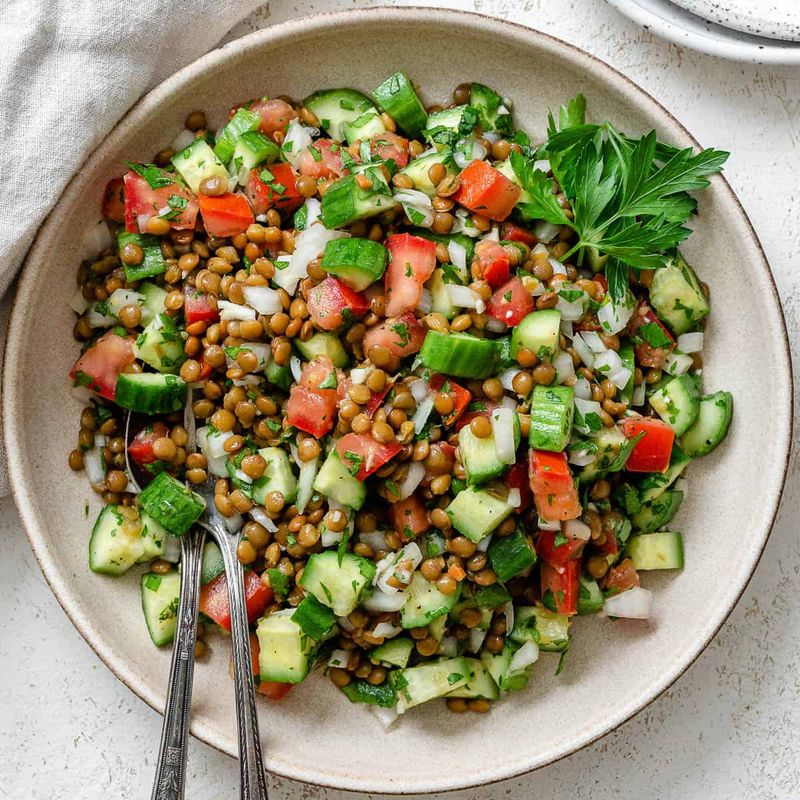
Lentil tabbouleh offers a protein-packed twist on a Middle Eastern classic. Envision a medley of lentils, cucumbers, and mint, creating a dish full of texture and flavor. This tabbouleh shines as a lunch option or a side dish, bringing a refreshing zest to any meal. The combination of ingredients not only delights the palate but also nourishes the body, embodying the Mediterranean diet’s emphasis on fresh, wholesome foods.
14. Mediterranean Grain Bowl
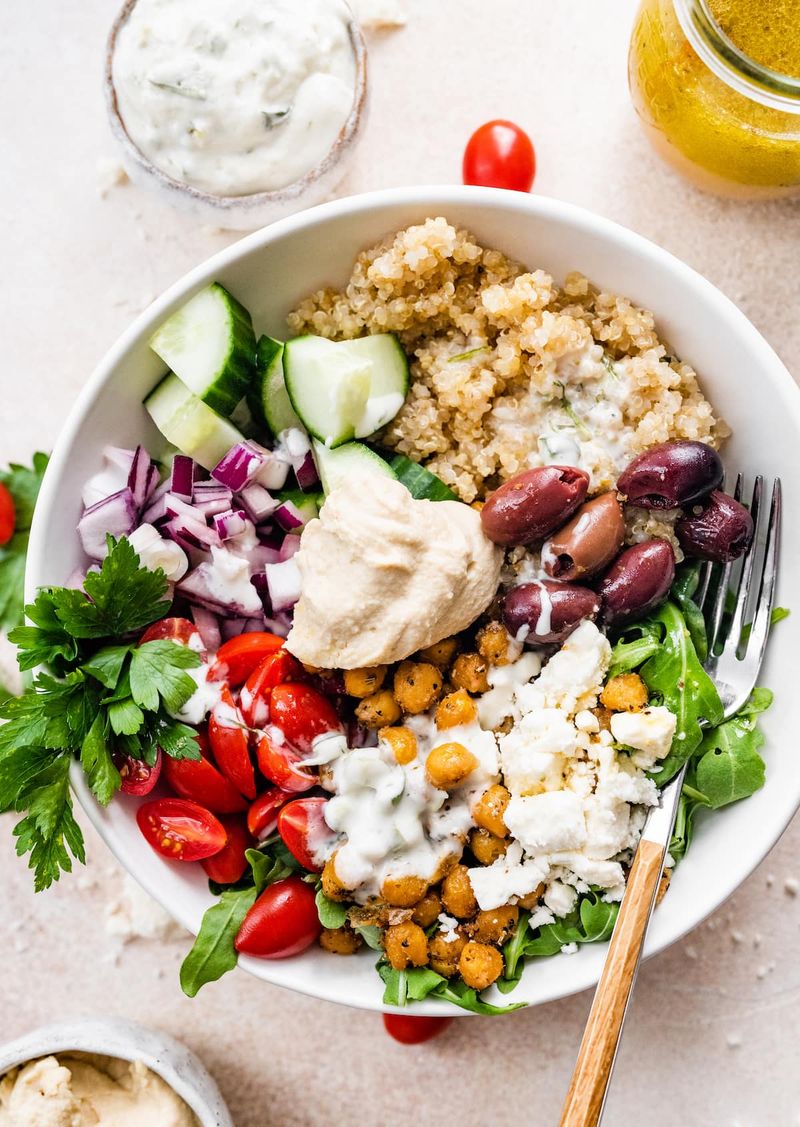
A Mediterranean grain bowl is a vibrant feast for the senses. Imagine quinoa, cherry tomatoes, cucumbers, and olives mingling with a dollop of hummus and slices of grilled chicken. A squeeze of lemon adds a citrusy brightness. This bowl is a tapestry of colors and flavors, offering a balanced mix of protein, fiber, and healthy fats. It’s a delightful, versatile meal that captures the essence of Mediterranean eating.
15. Baked Cod with Tomatoes, Olives, and Garlic
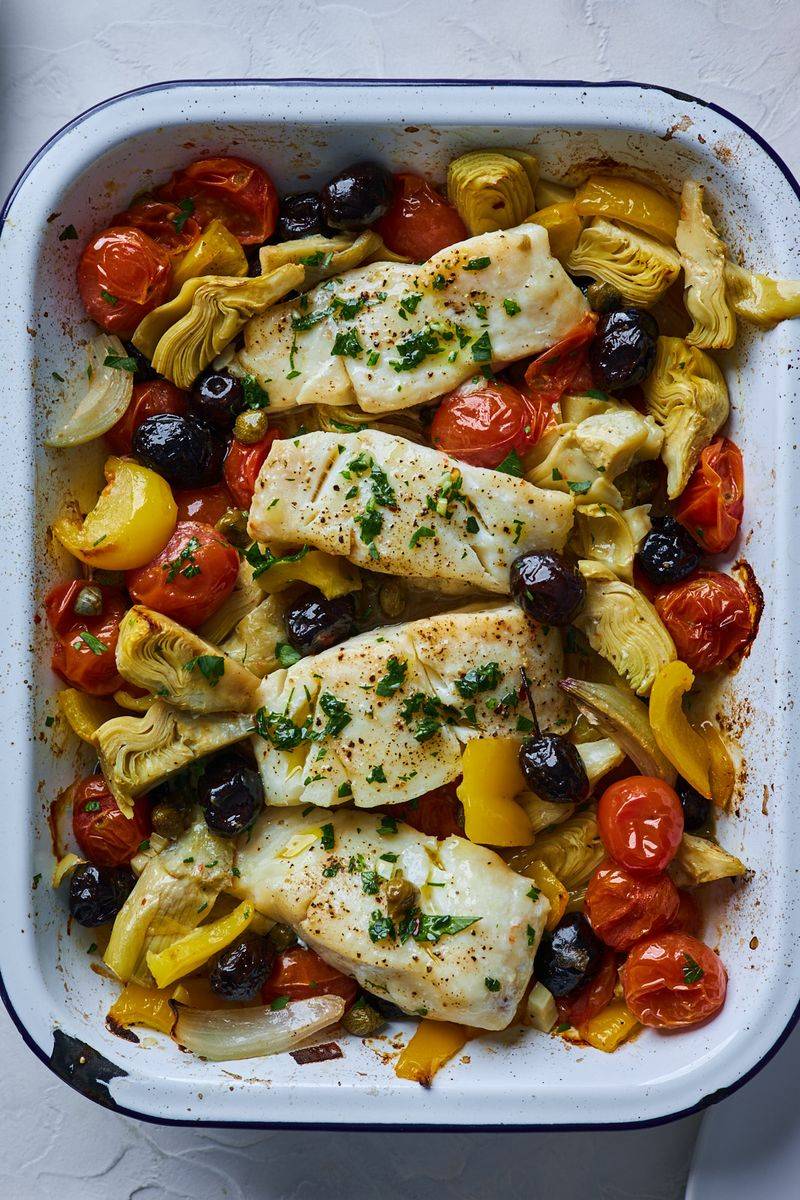
Imagine the aroma of baked cod mingling with the savory notes of tomatoes, olives, and garlic. This simple sheet-pan dinner transports you to the Mediterranean coast with its rich, coastal flavors. Each bite offers the goodness of lean protein and a burst of Mediterranean zest. This dish proves that healthy and delicious can coexist, becoming a staple in your culinary repertoire.
16. Greek Stuffed Peppers with Brown Rice and Herbs
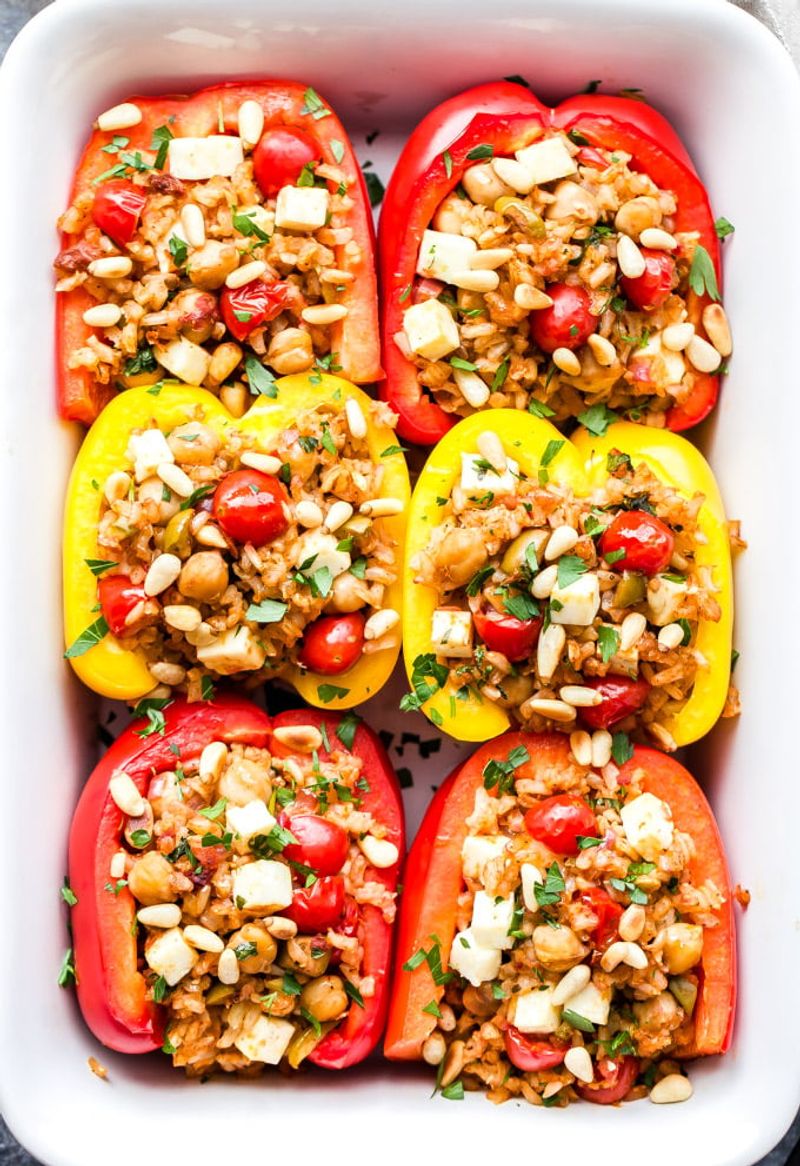
Visualize vibrant peppers stuffed with a savory mixture of brown rice and fresh herbs. Topped with a dollop of Greek yogurt, they become a fiber-rich, flavorful delight. Each pepper is a vessel of Mediterranean tradition, delivering a satisfying meal that bursts with taste and nutrition. This dish is a testament to the Mediterranean diet’s balance of health and indulgence, perfect for any occasion.
17. Zucchini Noodles with Pesto, Cherry Tomatoes, and Pine Nuts
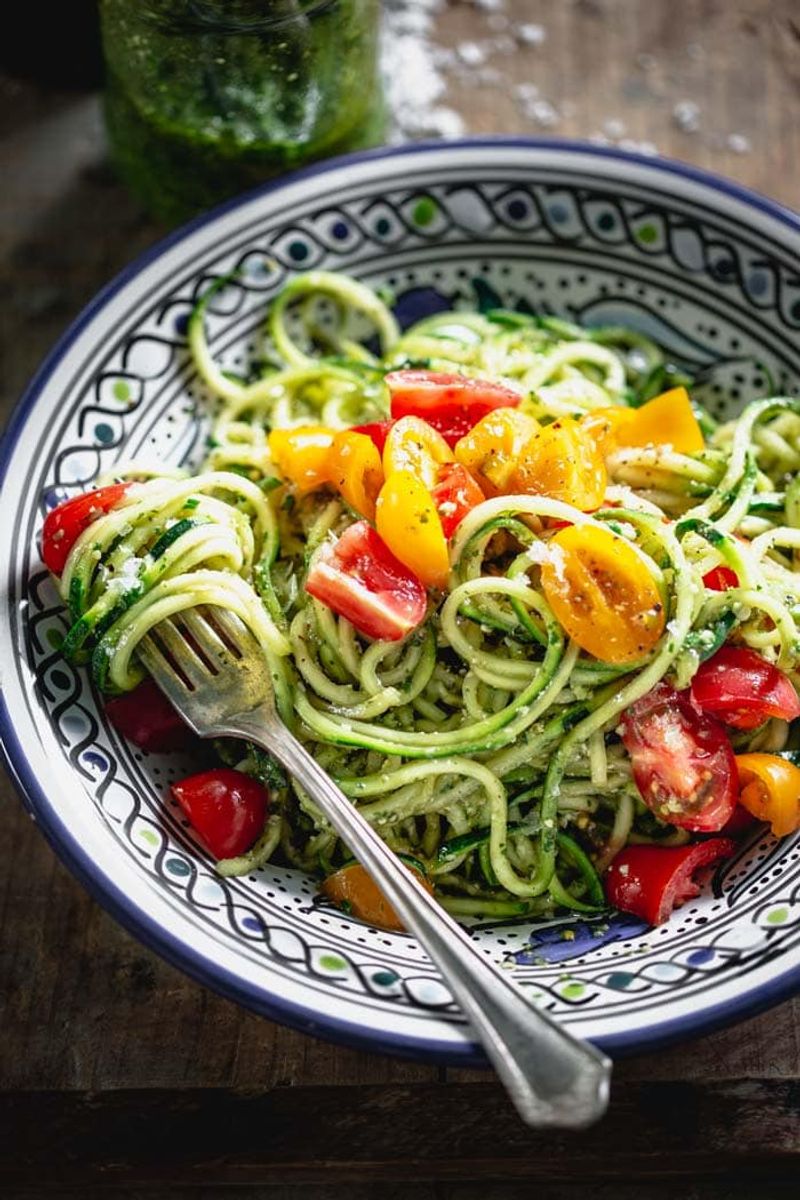
Zucchini noodles offer a light, refreshing alternative to traditional pasta. Picture them tossed with vibrant pesto, juicy cherry tomatoes, and crunchy pine nuts. This dish is a celebration of fresh basil and healthy fats, creating a symphony of flavors and textures. It’s an inventive take on a classic, providing a low-carb option without sacrificing taste or satisfaction. Perfect for a summer meal or a light dinner.
18. White Bean and Kale Soup with Garlic and Olive Oil
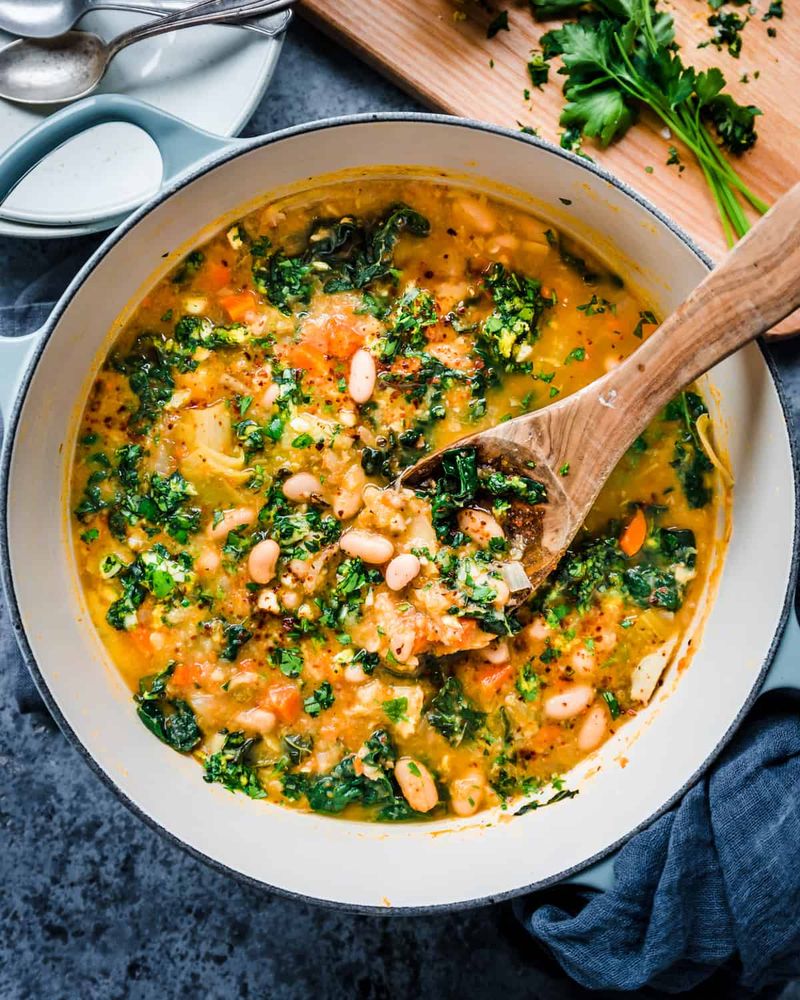
Envision a steaming bowl of white bean and kale soup, with a fragrant swirl of garlic and olive oil. This comforting meal is loaded with fiber, plant protein, and greens, embodying the nourishing spirit of the Mediterranean diet. It’s both hearty and soothing, offering warmth on a cold day or a healthful boost when needed. Each spoonful is a testament to the diet’s focus on wholesome, balanced eating.
